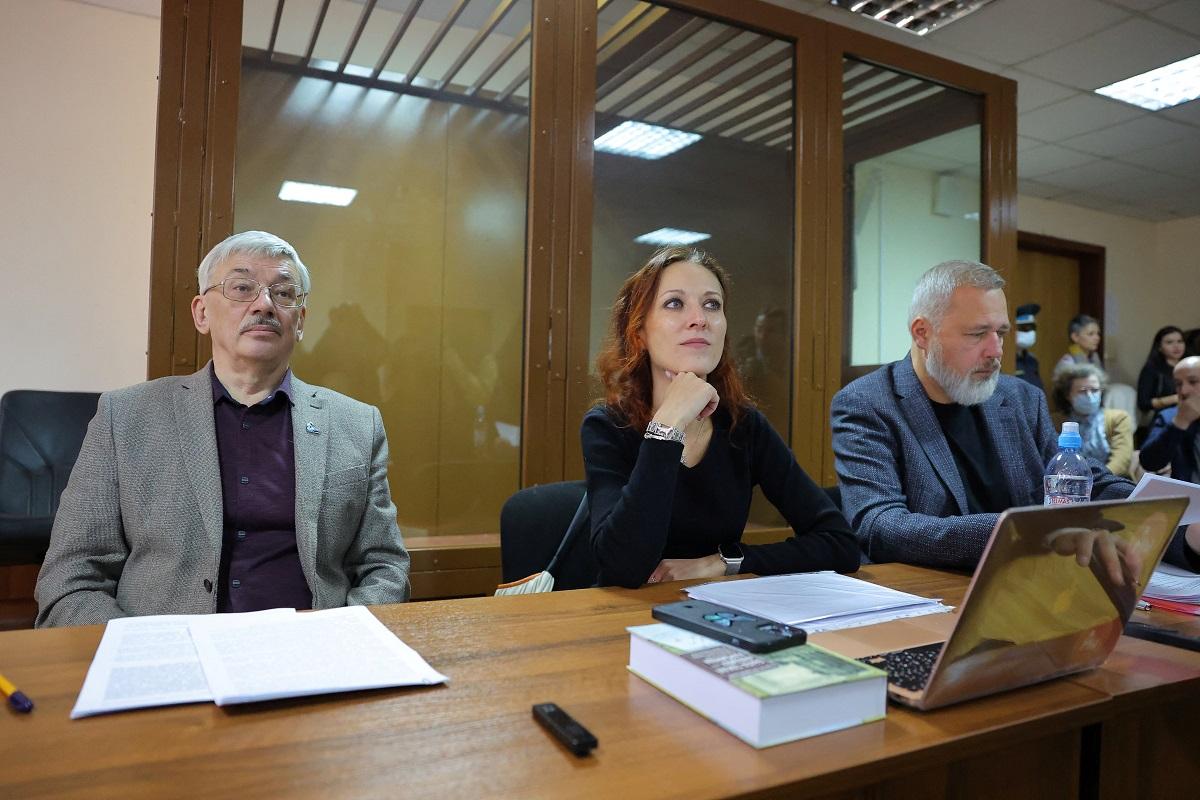Putin's Russia resembles Orwell's '1984,' Nobel winner tells court

LONDON — Rights activist Oleg Orlov told a Moscow court on Wednesday that Russia had descended into a totalitarian state resembling George Orwell's "1984" as he asked a judge to acquit him of discrediting the armed forces by condemning the war in Ukraine.
Orlov, 70, said it was "obvious" that Russians were living in the world of the dystopian novelist, as their country waged war on its neighbour while claiming to support freedom, peace and security.
"There is still no concept of 'thought crime' in the Russian criminal code; citizens are not yet punished for doubting the correctness of state policy if it was expressed in a whisper in their own apartment; they are not punished for an incorrect facial expression. Yet," he said.
"But if someone expresses such doubt outside his apartment, denunciation and punishment may follow."
Orlov was defending himself in a case based on a November 2022 article in which he wrote that Russia under President Vladimir Putin had descended into fascism.
"How did my country, which moved away from communist totalitarianism, slide into a new totalitarianism? What should we call this type of totalitarianism? Who is to blame for what happened?" said Orlov, a leading member of the Memorial human rights group that was disbanded by Russia in 2021 but won a share of the Nobel Peace Prize the following year.
He was supported in court by Dmitry Muratov, co-winner of the same prize in 2021, whose Novaya Gazeta newspaper was forced to shut down soon after Russia's invasion of Ukraine.
Muratov said that just as dissident Andrei Sakharov had predicted that the 1979 invasion of Afghanistan would lead the Soviet Union to disaster, so Orlov was right to warn that Russia was following a self-destructive path in Ukraine.
'Dark forces'
"We see that Sakharov was right, absolutely right then, warning that the USSR would undermine its existence, and Orlov is right now, warning about the danger of dark, pro-fascist forces," he said.
Orlov's and Muratov's lengthy statements to the court amounted to a devastating critique of Putin's decision to go to war in Ukraine from two of Russia's most internationally respected figures.
The Kremlin says its "special military operation" was justified by the need to protect Russian-speakers in Ukraine from "genocide" and to "demilitarize" and "denazify" the country—arguments rejected by Kyiv and its Western allies as a false pretext for an imperial-style war.
The prosecution in Orlov's case said the fact that the court hearing was open to the media, and that Muratov had been allowed to speak despite being designated a "foreign agent" by the state, showed that freedom of speech was protected in Russia.
But it said such rights were accompanied by obligations, including a duty to obey laws. It said it was impermissible to carry out "provocations aimed at splitting civil society."
Based on Orlov's age and state of health, however, the prosecution said it was seeking a fine of 250,000 roubles ($2,500) rather than the prison sentence of up to three years that it could have sought under laws passed soon after Russia's invasion of Ukraine last year.
The judge was due to pass sentence later on Wednesday.
Orlov, in his speech, said Russians had the right under the constitution to hold a different opinion from Putin.
"Where is it defined that our commander-in-chief (Putin) always rightly understands not only the interests of Russia, but the interests of its citizens?" Orlov asked in his closing speech at a trial which began in June.
"And if the ideas of a part of Russia's citizens about their own interests don't match those of the commander-in-chief, don't they have the right to talk about this?"
"But in that case, the president is no longer a president, but a spiritual and secular leader... Or are Russia's top officials now infallible, like the Pope?" — Reuters




